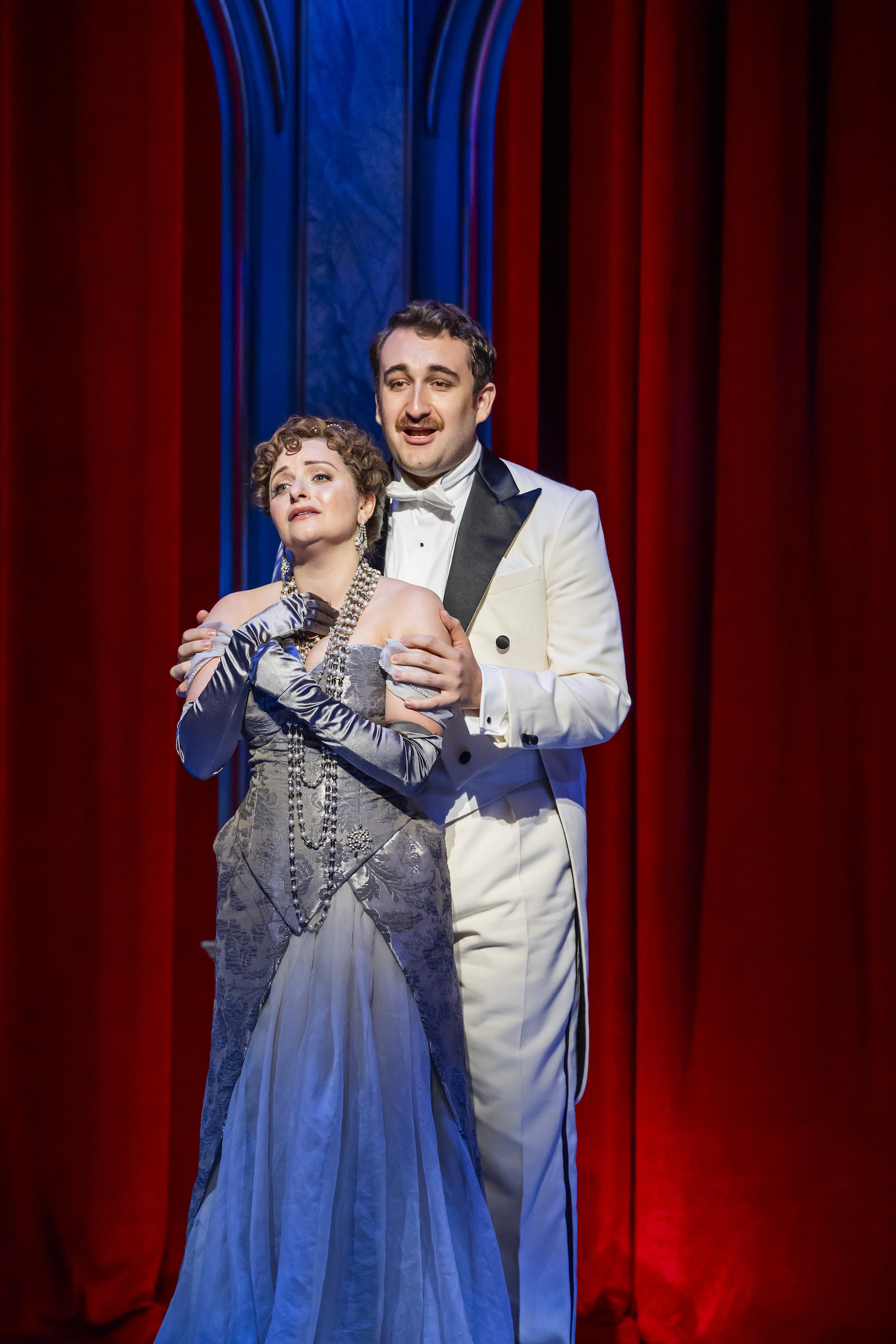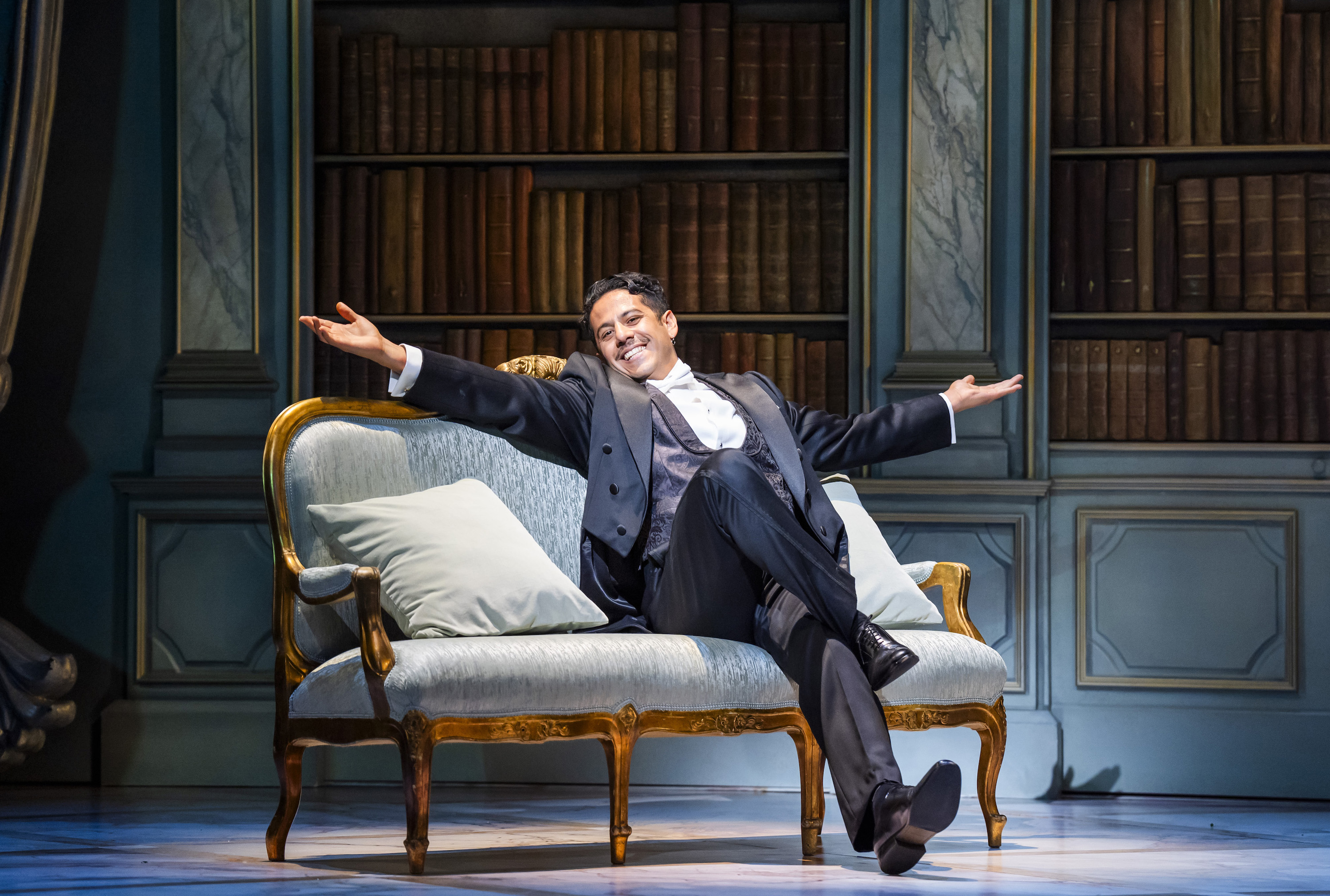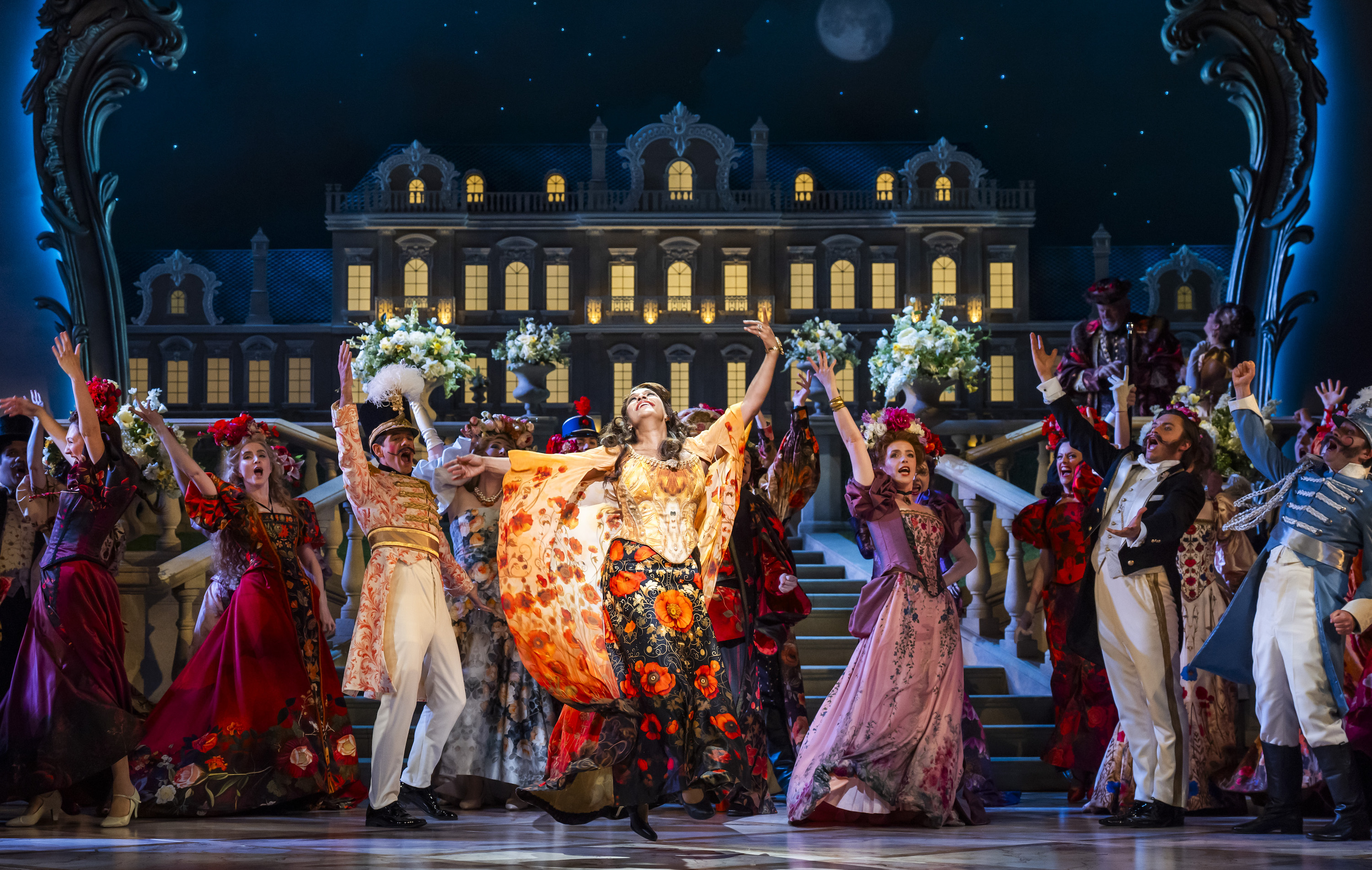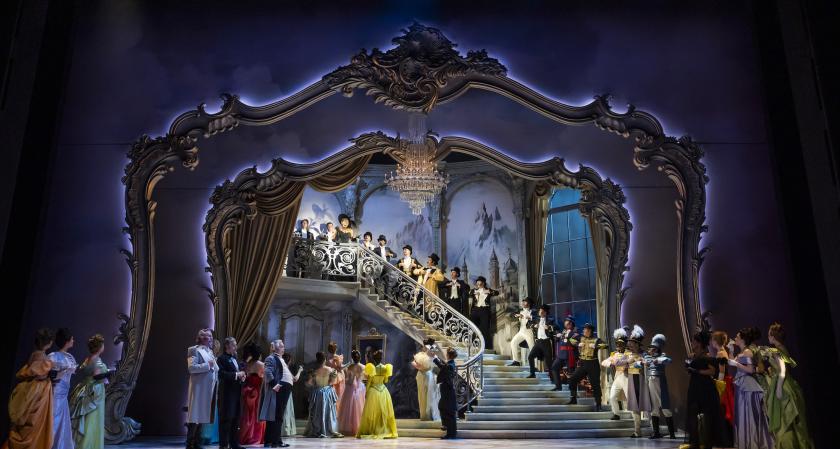Why would anyone want to stage a work like The Merry Widow in this day and age? Silly question. It’s the music, stupid. Of course, it’s an entertaining story and there are some good jokes. But I'd bet that if Heuberger had composed the music to this libretto, as he started doing, instead of Franz Lehár, who took it on afterwards, I wouldn't now be writing about Cal McCrystal’s new Glyndebourne production, or anyone else’s for that matter.
I realise this might not be quite McCrystal’s opinion. To judge from his approach in Sussex, he sees the work as a comedy with musical attachments. Or from a slightly different angle, he sees it as a pantomime enriched by music on the one hand and invigorated by slapstick on the other. It’s a point of view, and one that earned him the rapturous applause and at times participation of a Glyndebourne audience still said to be thirsting for a bit of jollity after the melancholy years of lockdown and potholed roads – though I have to say that the Glyndebourne audience in general are probably the least likely to suffer too much from such inconveniences.
 Be that as it may, McCrystal wows them with fun and frolics from the moment, before a note of music has been heard, when Njegus, the Pontevedrian embassy clerk played by Tom Edden as a hand-flapping, gay-voiced bellboy, steps before the footlights and delivers, rather well, seven or eight minutes of stand-up comedy, to the moment in the final act when the same Njegus – a spoken role in Lehár’s score – is gifted a song-and-dance spot from somewhere or other (perhaps Lee Reynolds's new edition of the score), and then encores it twice, with the audience clapping along.
Be that as it may, McCrystal wows them with fun and frolics from the moment, before a note of music has been heard, when Njegus, the Pontevedrian embassy clerk played by Tom Edden as a hand-flapping, gay-voiced bellboy, steps before the footlights and delivers, rather well, seven or eight minutes of stand-up comedy, to the moment in the final act when the same Njegus – a spoken role in Lehár’s score – is gifted a song-and-dance spot from somewhere or other (perhaps Lee Reynolds's new edition of the score), and then encores it twice, with the audience clapping along.
Njegus is also the star of the scene in which Danilo, the opera’s reluctant hero, arrives drunk and slithers down the embassy staircase on his back (no mean stunt), and it then takes Njegus five minutes to wake him up in a slap and tickle routine worthy of Benny Hill. There’s a good deal more of the same, including a shadow-play of Camille and Valencienne (pictured above) in the little pavilion, he apparently hurling her up in the air and what-not while Njegus and Hannah, the eponymous widow, discuss the matter of Valencienne’s infidelity and how to conceal it. None of this has much to do with Lehár, though it’s all good healthy fun. McCrystal admits to having added some of “his own stuff”, and though it extends the evening by a solid half-hour, nobody seems to mind because it’s such jolly stuff.
This whole performance, including plenty of things that Lehár and his librettists did write, plays out in front of a series of spectacularly beautiful, Belle Époque sets by Gary McCann, designed as a stage with flats and backcloths, period in the best sense, with just a trace of parody; and with costumes to match, also by McCann. Visually the production is a treat. Musically it’s more mixed, though not so mixed that Lehár doesn’t triumph while all around him fall about laughing. At its centre is Danielle de Niese’s Hannah Glawari (pictured below at the Pontevedrian party), as ever a brilliant stage presence, if vocally less secure and less warm-toned than in the past. She convinces in the totality, but the detail is sometimes hit and miss, and she perhaps lacks the last ounce of grandeur that this jumped-up but beguiling fortune-hunter needs to affect. Germán Olvera brings to Danilo a rough intensity and a suppressed passion that is new to this role for me, and it grew on me. His Act 2 ballad is authentically touching and his eventual submission to Hannah is likewise rather moving despite the artifice by which it’s achieved.
At its centre is Danielle de Niese’s Hannah Glawari (pictured below at the Pontevedrian party), as ever a brilliant stage presence, if vocally less secure and less warm-toned than in the past. She convinces in the totality, but the detail is sometimes hit and miss, and she perhaps lacks the last ounce of grandeur that this jumped-up but beguiling fortune-hunter needs to affect. Germán Olvera brings to Danilo a rough intensity and a suppressed passion that is new to this role for me, and it grew on me. His Act 2 ballad is authentically touching and his eventual submission to Hannah is likewise rather moving despite the artifice by which it’s achieved.
In general this is not particularly a production for vocal connoisseurs. Michael McDermott pursues Valencienne with boyish passion but thinnish tone, though it’s not his fault that his exquisite Act 2 song is ruined by a joke about the pavilion rolling on from the wrong side. Soraya Mafi is a charming, slightly impish Valencienne who, for some reason, loses her Act 3 role as a substitute grisette to Mme Glawari – not that it makes a lot of difference. Thomas Allen, with not much to sing, is nevertheless a loveable Baron Zeta, if a shade too old-looking to be even an older-man husband for Valencienne – more her sugar daddy perhaps. The other assorted Parisian and Pontevedrian counts and courtesans pop in and out, chasing one another and variously contributing to the fun, the grisettes dance marvellously to Carrie-Anne Ingrouille’s sparkling choreography, and the Glyndebourne chorus have a field day in their wonderful costumes singing this unforgettable music. John Wilson conducts stylishly, and the London Philharmonic Orchestra discreetly bring out the unexpected refinement of Lehár’s orchestration, very much not the scrape and whistle of your standard operetta. I found the much extended dialogue sometimes hard to decipher, though not so hard that I failed to notice the linguistic anachronisms in Stephen Plaice and Marcia Bellamy’s adaptation – language that didn’t go with what we were looking at or hearing in the music. Does that matter? In the circumstances it’s of vanishing importance.
The other assorted Parisian and Pontevedrian counts and courtesans pop in and out, chasing one another and variously contributing to the fun, the grisettes dance marvellously to Carrie-Anne Ingrouille’s sparkling choreography, and the Glyndebourne chorus have a field day in their wonderful costumes singing this unforgettable music. John Wilson conducts stylishly, and the London Philharmonic Orchestra discreetly bring out the unexpected refinement of Lehár’s orchestration, very much not the scrape and whistle of your standard operetta. I found the much extended dialogue sometimes hard to decipher, though not so hard that I failed to notice the linguistic anachronisms in Stephen Plaice and Marcia Bellamy’s adaptation – language that didn’t go with what we were looking at or hearing in the music. Does that matter? In the circumstances it’s of vanishing importance.














Add comment